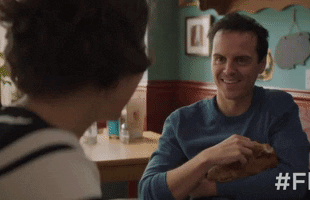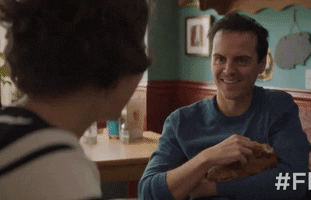Imperfect. Flawed. Vulnerable. Films like Zindagi Na Milegi Dobara, Khoobsurat, Lunch Box, October and Dil Dhadakne Do have presented a new category of men- Men Written by Women. These have been carefully and intricately designed by women, for women.
Fed up with the lackluster portrayal of ‘women written by men’ in movies, female directors and writers have decided that if they wanted something different, they had to do it themselves. The male gaze has often reduced female characters to just being plot propellers or eye-candies, existing solely for male satisfaction. This just supports the patriarchal status quo and sets unrealistic expectations for women. It is often evident in books or films where the female character’s appearance is highlighted in an excruciatingly detailed manner, regardless of the ongoing plot. Enter, the female gaze.
The first adjective that with the term female gaze reminds you of is ‘respectful’. It is respectful towards the subject; notice here that the character is referred to as a subject instead of an object. They are no longer one-dimensional characters on paper, they are subjects with experiences, emotions and flaws. Most importantly, they are realistic and based on people n we may actually come across in our life.
For directors who brought the term ‘female gaze’ to fruition, it is only a matter of time that their subject shifts to the male characters in the plot. The same adjectives are applied- imperfect, flawed, vulnerable and respectful. Dr. Jehangir in Dear Zindagi didn’t use any cliché Bollywood wooing techniques or break into a catchy dance number. Still, he managed to bag Alia’s heart, along with ours. His character was intricately detailed- all designed by a woman (screenwriter and director Gauri Shinde), keeping in mind what a women want rather than what men think women want. Dr. Jehangir didn’t do anything overly romantic or even go out of his way to please Alia. Instead, he understood the fact that women didn’t want anyone to solve their problems; all he had to do was to be a good and patient listener. Dear Zindagi also showed us the fresh perspective of a woman rejected by a man. Rana in Piku and Sunny Gil in Dil Dhadhakne Do are two more characters that were assigned similar roles and managed to make unforgettable impression onto their female audience.
But is romance the only genre these ‘men written by women’ can ace? Zindagi Na Milegi Dobara is and intends to stay a nonpareil for portraying male friendships. The way these characters have been scripted in this movie is so good that I think it’s safe to say –”They don’t make movies like that anymore!” All three characters- Imran, Arjun and Kabir were subjected to vulnerability and each one of them was fighting their own demons. Throughout the movie, the audience isn’t served a cliché male friendship where the men merely high five or crack jokes. The plot reveals a more profound and genuine connection between the three, where they are able to bare their deepest insecurities and fears.
A new perspective that is inspired by the female gaze is portraying a flawed woman as the central character and the men as her love interests. I have noticed in these cases that even these love interests are portrayed in such detail and it is taken care that their story is not overshadowed. One of the best examples is groundbreaking sitcom – Fleabag. The protagonist ‘Fleabag’, played by its writer Phoebe Waller-Bridge isn’t an elegant or groomed woman. She is in her 30s, grumpy and struggling to keep her café stay open. She has a string of relationships that were not so ‘happily ever after’ but were enough to keep us entertained. Each of these male characters was essential to Fleabag’s character development and their stories weren’t overshadowed by the main plot.
However, the show stayed unapologetically focused on the central character’s perspective. Shockingly, Fleabag is a hardcore romantic. She isn’t afraid to be vulnerable before the man she truly likes: “I want someone to tell me what to wear every morning. I want someone to tell me what to eat. What to like, what to hate, what to rage about, what to listen to, what band to like, what to buy tickets for, what to joke about, what not to joke about. I want someone to tell me what to believe in, who to vote for, who to love and how to tell them.” Her love interest is The Priest, played by Andrew Scott- an actual priest who offers Mass on Sundays and officiates marriages. Like the characters mentioned above, he is a good listener, flawed and imperfect. Inevitably, it didn’t take long for the character to blow up online as ‘The Hot Priest’.
A good listener, that’s all it took for these characters to wow the female audience. I’m afraid I must to burst this bubble and point out that the line between these characteristics and being a man who does the bare minimum is somewhat blurred. The bar is literally on the floor; putting men on a pedestal for just being good listeners and then turning a blind eye to all the qualities they don’t have isn’t the way to go. To conclude, it’s fair to say that men and women written by women writers are more often that not, closer to being three-dimensional than those created by men in the past.

